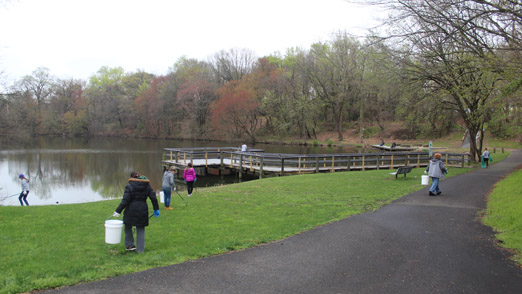Provided by Fire Chief Joseph V. Palumbo, Sr., CPM and the Pennsauken Fire Department
If we have off from work or school, there’s nothing quite like watching the snow fall on a winter’s day. But when it comes to emergency situations, that beautiful scene can become a hazard. But as always, an ounce of prevention is worth a pound of cure. By planning ahead and preparing for the issues winter emergencies can cause, you’ll be taking important steps to keep you and your loved ones safe.
Preparing For Winter Storms
We all know that local news loves a good snow storm. As sensational as they like to make weather events, the terms they use from the National Weather Service are helpful indicators about what kind of winter weather to expect. Here’s what some winter storm warning terms mean:
- Winter Weather Advisory: Expect winter weather conditions (e.g., accumulation of snow, freezing rain, and sleet) that could cause severe inconvenience and life-threatening hazards
- Frost/Freeze Warning: Expect below-freezing temperatures
- Winter Storm Watch: Be alert; a storm is likely
- Winter Storm Warning: Take action; the storm is in or entering the area
- Blizzard Warning: Seek refuge immediately! Snow and strong winds, near-zero visibility, deep snow drifts, and life-threatening wind chill
In order to prepare for severe winter storms, homes should have at least a three-day supply of water for each member of the family. That equates to one gallon of water per person per day. There should be at least a three-day supply of non-perishable, easy-to-prepare food for each person as well.
In case of a winter emergency, be sure to have a flashlight with extra batteries; a battery-powered or hand-crank radio; a fully stocked first-aid kit; a seven-day supply of necessary medications, as well as needed medical items, including hearing aids with extra batteries, syringes, canes, and the like; a toolkit or a multi-purpose tool; sanitation and personal hygiene items; and cell phones with chargers. If your family has an infant, be sure to have plenty of baby formula, bottles, baby food and diapers. The same goes for those families with pets; keep plenty of pet supplies handy, like a lease and collar, ID, food, pet carriers, bowl, etc. It’s also important to have a list of medications and pertinent medical information handy, as well as phone numbers for family members and emergency contacts.
Keeping Warm During The Cold
During snow storms, layering is key. When headed outside, dress in several layers of lightweight clothing and wear winter gloves and a hat, preferably one that covers your ears.
When inside, keep plenty of extra blankets, sleeping bags and warm winter clothing handy for when the temperature drops. Having a fireplace with plenty of dry firewood or a gas log fireplace can also help. If you’re looking to supplement your heater, use electric space heaters with automatic shut-off switches and non-glowing elements. Never place a space heater on top of furniture or near water and never leave children unattended near one. Also, be sure to keep heat sources at least three feet away from furniture and drapes. Never use an electric generator indoors, inside the garage, or near the air intake of your home, due to the risk of carbon monoxide poisoning. And never use charcoal grills or portable gas camp stoves indoors. The fumes are deadly. It’s situations like these that stress the importance of having working smoke and carbon monoxide detectors throughout the home
In the case of power outages caused after winter storms, particularly ones that can potentially last for long periods of time, it’s important to move to a warmer location. Options are designated public shelters, or a nearby relative or friend’s house that has power. If possible, avoid driving when conditions such as sleet, freezing rain, or dense fog. It’s also important to winterize your vehicle and keep your gas tank full to prevent the car’s fuel line from freezing.
For more safety tips on how to prepare for severe winter weather, download the Winter Storm Safety Checklist from the American Red Cross here.



